学生紹介
-
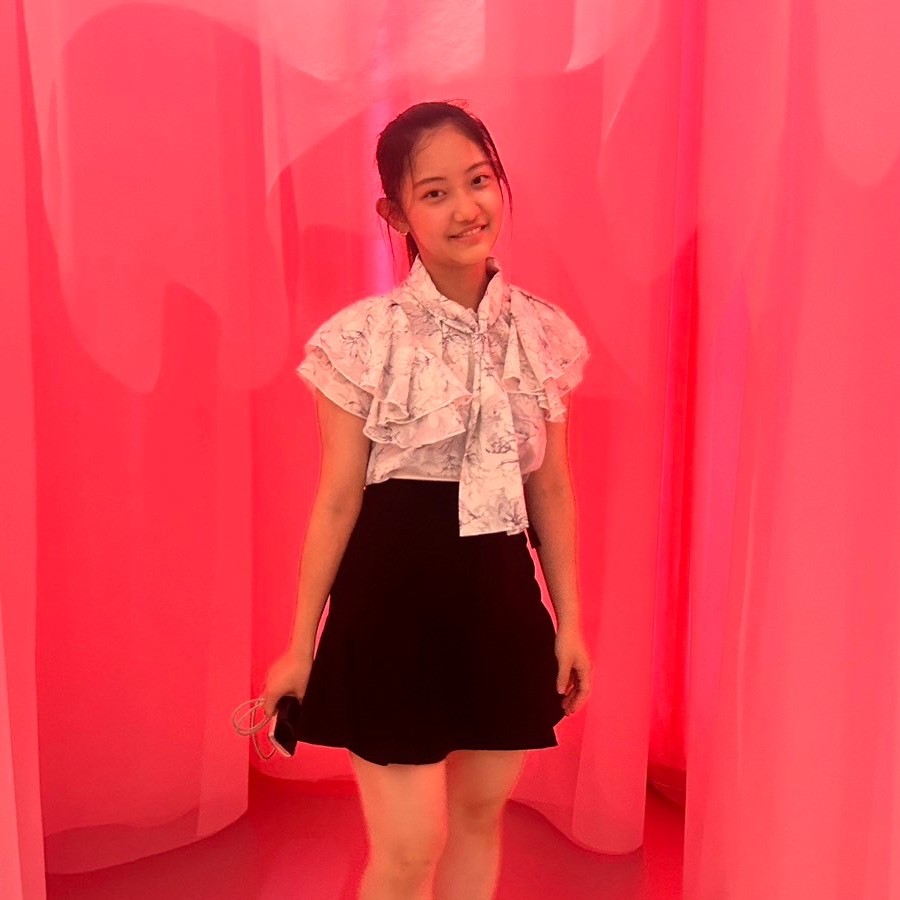
Hinano(2024年度入学/出身高校:国際基督教大学高校)
-
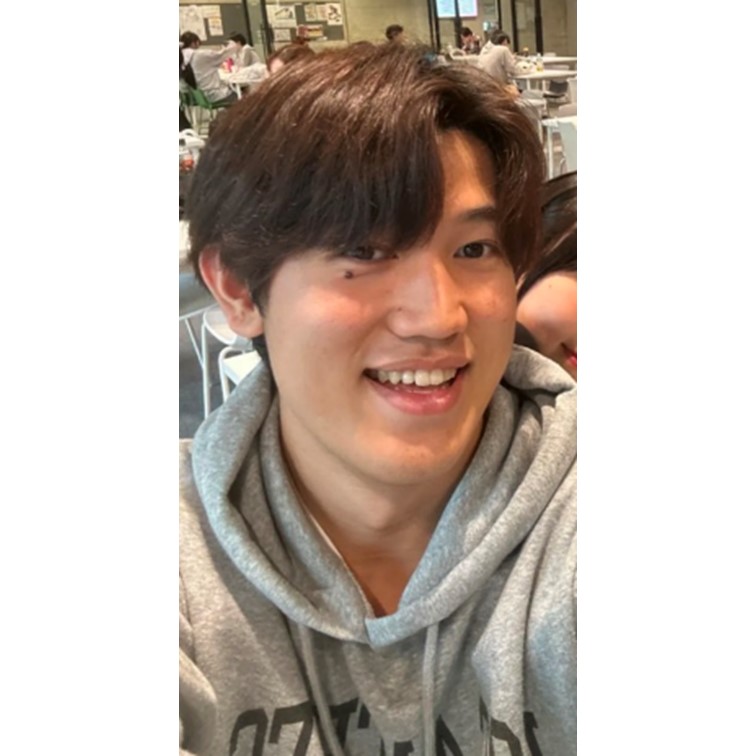
Tomoya(2024年度入学/出身高校:法政大学第二高等学校)
-
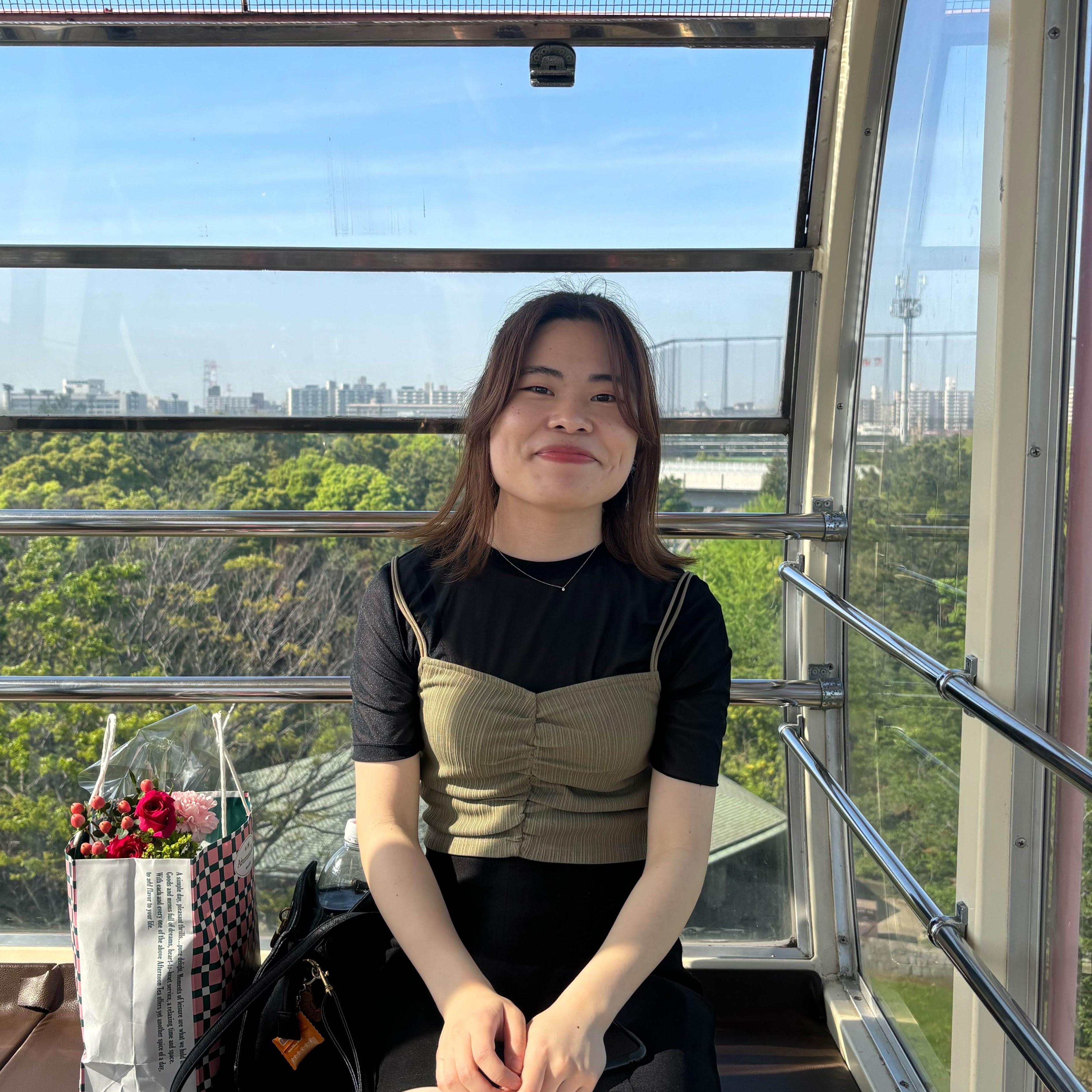
Miyu(2023年度入学/出身高校:宝仙学園高等学校共学部)
-
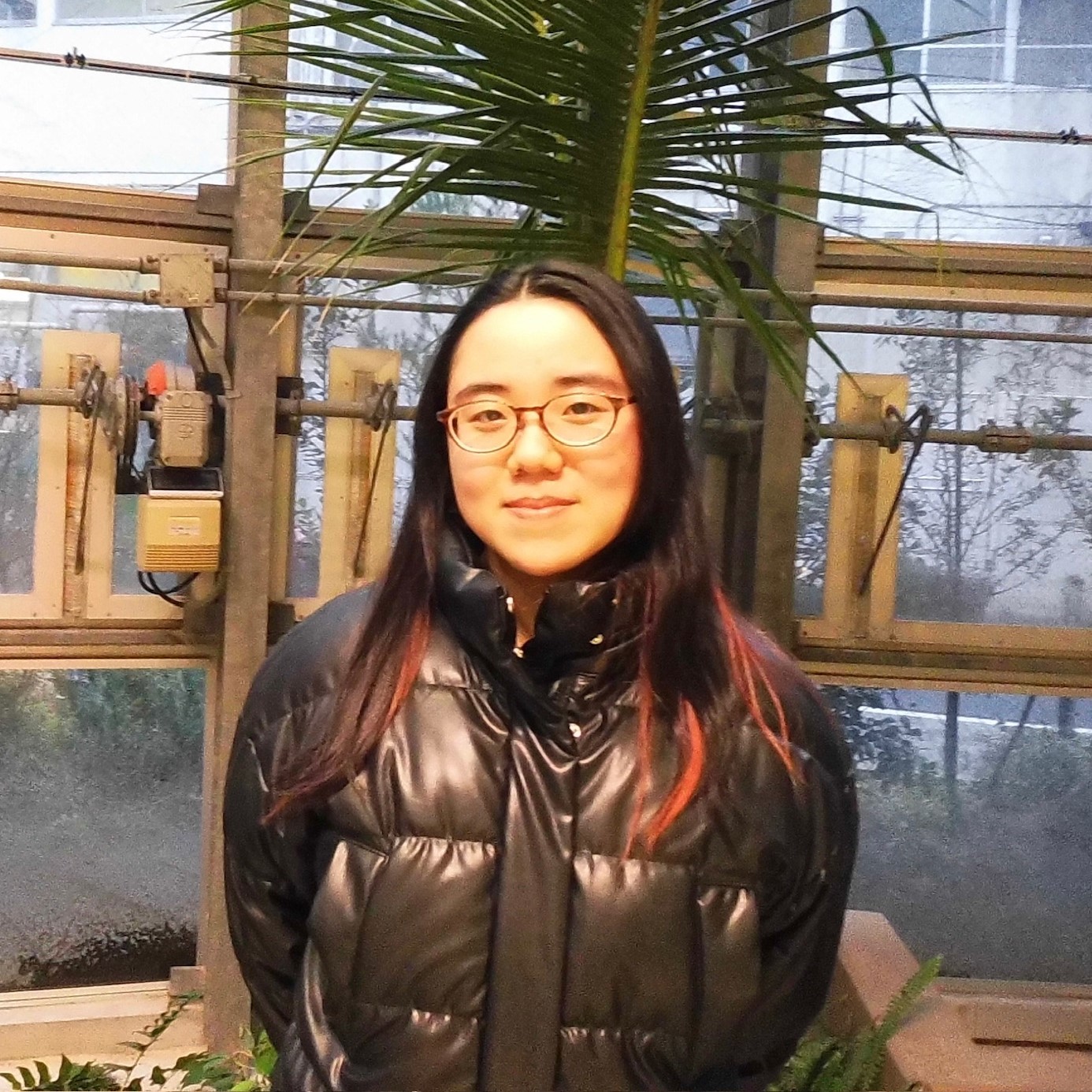
Maho(2023年度入学/出身高校:玉川学園高等部)
-
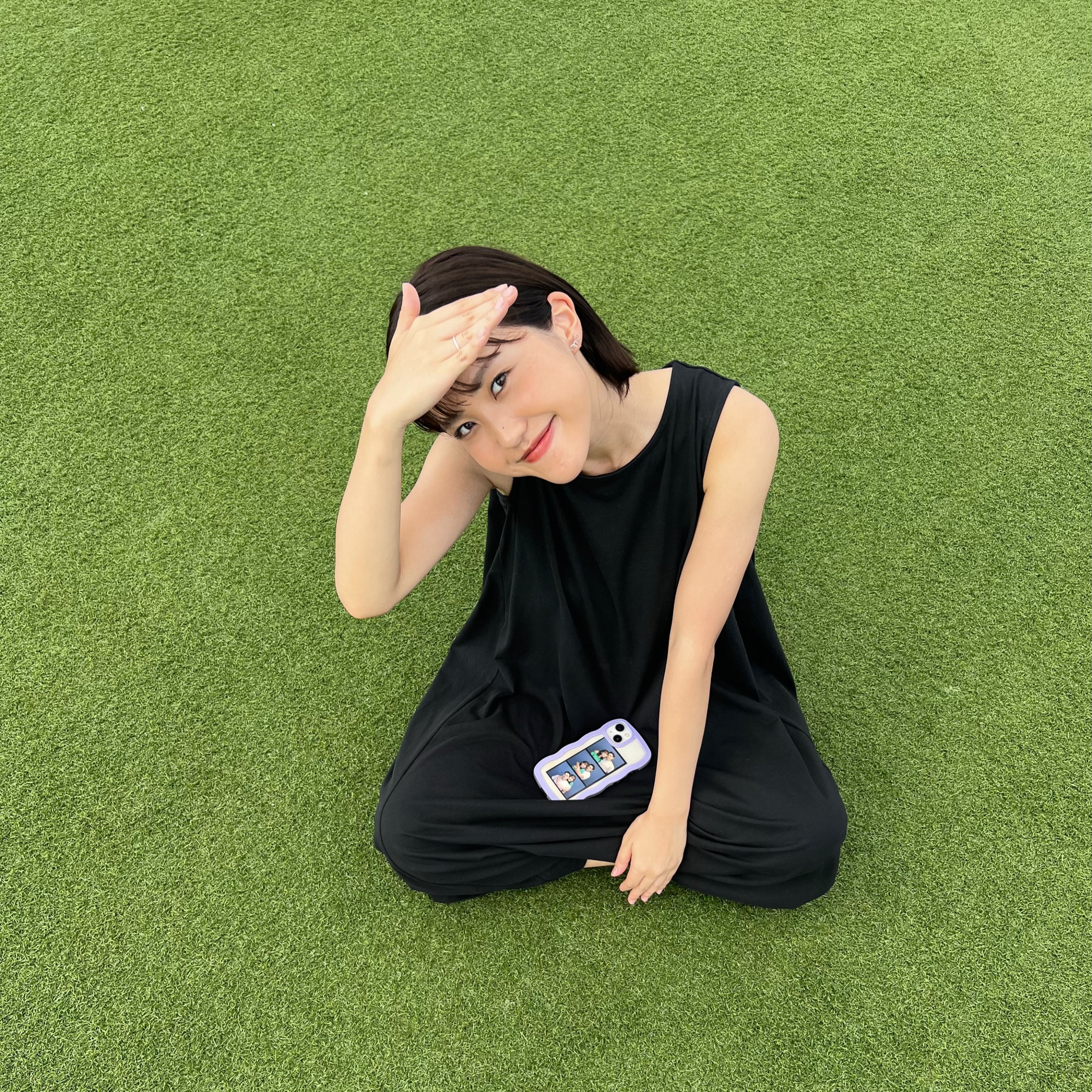
Mahiro(2022年度入学/出身高校:私立工学院大学附属高等学校)
-
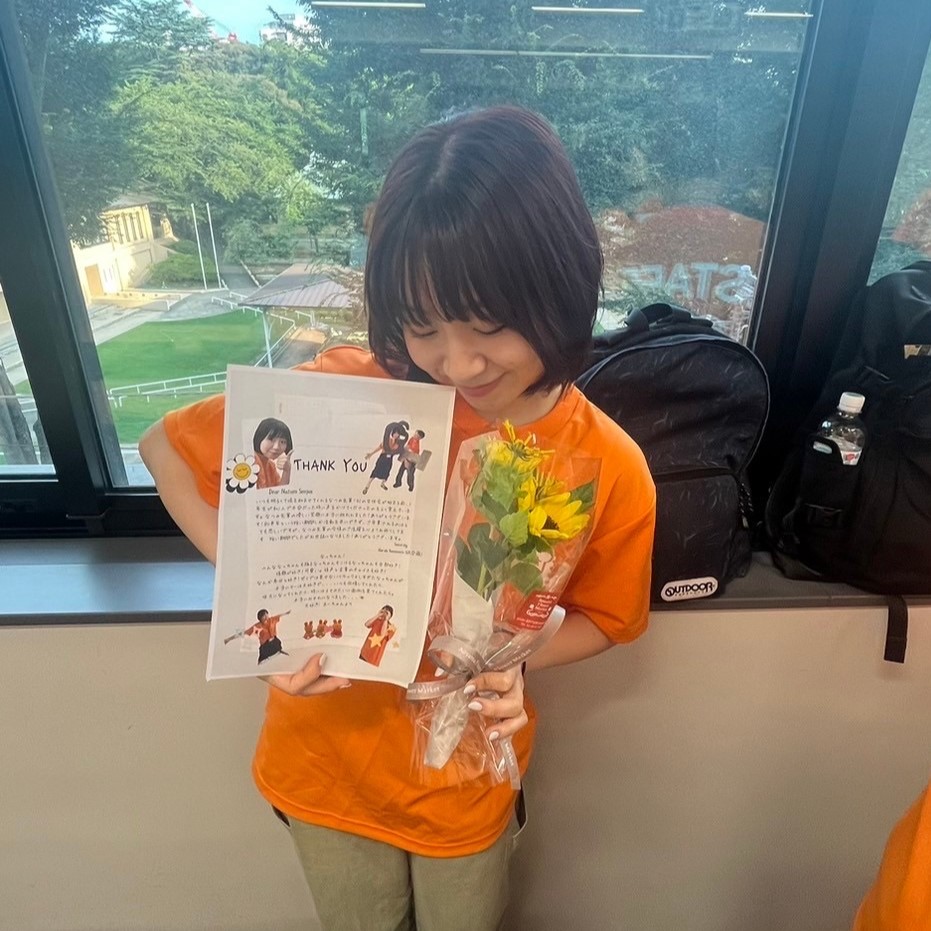
Natsumi(2021年度入学/出身高校:私立淑徳高校)
GISについて
Q. GISのここが好き!を教えてください。
Tomoya
私は、GISの授業の形式と雰囲気がとても魅力的だと思います。おそらくみなさんが想像する大教室で教授の話をただ一方的に聞いているようなものではありません。GISの授業は少人数である上に、ディスカッションや発言などが多く求められるような授業がほとんどです。そのため、教室がアットホームな環境である上に、積極的に授業に参加することができ、大学での学びをより深めることができると身をもって感じました。
The thing I like about GIS is how the lessons are formed. A typical university lesson that you might imagine would be in a big room with lots of students and one professor who talks throughout the entire lesson. However, most GIS classes are small with only 20 or 30 students. In addition in most the classes you need to speak up and give your opinion, this creates an environment which is like being at home. The GIS environment is one where students proactively participate in classes, which allows students to have a deeper understanding of subjects.
Maho
少人数で授業が行われているところが好きです。授業の定員が36人のため学生及び教授との距離が近くなり友達も作りやすく、授業に関する質問がしやすいです。また、グローバル教養ということもあり幅広く色々な学問に触れることができます。その幅広い中で3年生からゼミを決めることができ、学んでみてから専攻分野を決めたいという人には最適な学部だと思います。
I really like how GIS teaches in small classes, we can easily make friends and get to know our professors. Since it’s a liberal arts course, there’s a broad field of topics which are offered. If you’re unsure what you want to study, or want to study a bit first and see what it’s like, this is the place for you!!
Mahiro
GISの好きなところは、あたたかい環境です。GISでは、難しい課題やプレゼンテーションを日々こなしていかなくてはいけません。そんな時、教授や友人が自分の味方になって、わからない部分を自分がわかるまで教えてくれます。学びに貪欲な学生にはどこまでも教えてくれる、そんなGISが私は大好きです。
My favorite thing about GIS is the warm environment; in GIS, students sometimes have difficult assignments and presentations. At such times, my professors and friends become my allies and teach me what I don't understand until I can figure it out for myself. Professors are happy to teach students who are eager to learn as much as they can! That is what I love about GIS!
Q. なぜGISに入学しようと思いましたか。
Hinano
これまでの国際経験を活かしつつ、将来の夢に近づける大学で学びたいと考えていました。具体的に、「英語で」「多様なバックグラウンドを持つ仲間と共に」「特定の分野にとらわれず」「様々な視点から物事を考えられる人になる」と志しておりました。そんな中、GISでは、幅広い分野の授業がすべて英語で開講されており、日本にいながらまるで海外の大学に留学しているかのような大学生活が送れると思い、入学を決めました。
I wanted to attend a university where I could make the most of my international experiences, such as living and studying in the UK, while also getting closer to my future goals and dreams. Specifically, I aspired to become someone who can approach concepts from various perspectives, and not be confined to a single field of study. Also, I wanted to be surrounded by friends from diverse backgrounds, and be in an environment where only English is used. GIS met all of my expectations as it has a wide range of courses that are taught entirely in English, allowing me to experience a university life that feels almost as if I am studying abroad. That's why I decided to enroll in GIS.
Natsumi
大学受験時はコロナ禍で、日本国内にいながら海外大学のように授業を全て英語で受けられる環境に身を置きたいと考えていたためです。また、知的好奇心が旺盛な私にとって、大学入学後に様々な学問領域を知って上で専攻分野を決めることのできるリベラルアーツ教育はぴったりでした。特に、受験当時はビジネス領域と観光学に興味があり、その2つの分野の授業を英語で学ぶことができるGISに魅力を感じ入学を決意しました。
When I was applying to universities, I was looking for an environment where I could take all my cases in English, as if I was studying abroad, because the COVID pandemic had made travel overseas almost impossible. Also, as someone who is intellectually curious, I thought that a liberal arts education would be a good fit for me as it would allow me to study a variety of academic fields before deciding on a major. I was particularly interested in the business field and tourism studies at the time of the entrance examinations, and I was attracted to GIS, where I could study classes in these two fields in English.
Q. GISに実際に入ってみてイメージと違っていたこと、予想外だったことは何ですか?
Miyu
入学前にGISでは課題が多いと聞いていて、とても不安でした。しかし、実際に入学してみると、課題は多いものの、しっかりスケジュールを立てて授業を組めば、アルバイトやオープンキャンパスの活動と両立できることがわかり、予想外でした。また、全ての授業でエッセイが出るのかと思っていましたが、授業によってはポスターを制作したり、ウェブサイトを作成したりといった興味深い課題があったのも、イメージと違った点です。
Before enrolling, I heard that there would be a lot of assignments at GIS, which made me very anxious. However, I found that while there are many assignments, as long as I create a solid schedule and really organize my classes, then it is possible to balance them with part-time work and activities like open campus. Additionally, I thought that all classes would have essay assignments, but I was surprised to discover that some classes had different kinds of assessments, such as creating posters or building websites.
Mahiro
いい意味で、想像通りでした。全て授業は英語で行われ、レベルも高いなと日々感じています。三年生になった今でも課題などに取り組む時間は以前ほどかからなくなってきたものの、まだ授業内容では、「難しいな」と感じるものも多くあります。日々刺激的な毎日を送っています。
In a good way, GIS has been just as I imagined. All classes are in English, and I feel that the level is high each day. Even now that I am in my third year, I find that I spend less time on assignments, but there are still many things in the classes that I find “difficult”. Every day I am having such a stimulating life in GIS!
Natsumi
英語力と成績が必ずしも比例するわけではないということに驚きました。授業によって異なりますが、GISでは授業の受け方やクラス内のディスカッションへの臨み方など様々な要素が総合的に判断され成績がつけられます。英語力の高さだけで、成績が保障されているわけではないので、日ごろからニュースに興味を持ち、授業で分からないことがあったらすぐに教授に聞きに行くといった積極的な学びの重要性を実感しています。
I was surprised to learn that English language skills are not necessarily proportional to grades. It depends on the class, but at GIS, grades are given based on a comprehensive assessment of various factors, such as how you take the class and how you approach in-class discussions. As a result, I realize the importance of active learning, such as taking an interest in the news and talking to professors immediately if I don't understand something in class.
授業について
Q: 課題の量はどのくらいですか。
Hinano
課題の量や所要時間は授業によって異なります。ほぼ全ての授業でリーディング教材を使った予習が求められ、その確認テストの勉強や、ディスカッションに備えて自分の意見をまとめる作業もあります。授業後の提出課題は少ないですが、3週間ごとにレポート課題が出る授業もあるほか、テストに向けて日々の復習も欠かせません。課題の量やテストの形式、そして自分のスケジュールを考慮しながら時間割を組み立てることが大切です。
The amount of assignments and the time required to complete them vary depending on the class. For almost all classes, you need to read the assigned materials in advance. Additionally, you’ll need to prepare for quizzes or organize your thoughts for in-class discussions. While there aren't many post-class assignments, some classes require a report every three weeks, and it is essential to do a regular review of class materials for exams. You really have to think about your workload, in-class activities, and exam formats when organizing your schedule.
Miyu
課題の量は授業や教授、週によって異なります。授業によっては、次回の講義前にリーディングを読んだり、関連する質問に答えたりする課題が出ることがあります。また、授業前に予告なしにテストがあることもあるため、予習が必要な場合もあります。期末テストがない代わりにレポート提出がある授業を多く受けると、期末前はレポート提出やテスト勉強で忙しくなることが多いです。そのため、課題の量は人によって異なります。
The amount of assignments varies depending on the course, the professor, and the week. In some classes, students have to read assigned readings before the next lecture or answer related questions. Also, some classes have pop quizzes before class, which can require preparation. When you take many courses that do not have final exams but instead requires final reports, you will likely be busy with these submissions and studying for tests before the end of the term. Therefore, the amount of assignments can vary depending on the courses you take.
Q: ゼミの様子を教えてください。
Natsumi
福岡教授のGlobal Strategic Management Seminarに所属しています。福岡ゼミでは、春学期に3つのグループに分かれてリーディングを元にプレゼンテーションを行います。秋学期は、春学期での学びを活かしながらMCJと呼ばれるマーケティングコンテストに出場します。福岡ゼミは「Work Hard Play Hard」というモットーを掲げており、勉強と遊びと両方に全力に取り組んでいます。私はゼミを通して、プレゼンテーションとディスカッションの能力が向上したと実感しています。
I am in Professor Fukuoka's Global Strategic Management Seminar. In the spring semester, students are divided into three groups and give presentations based on readings. In the autumn semester, we compete in a marketing contest called MCJ while utilizing our learnings from the spring semester. The Fukuoka Seminar has the motto 'Work Hard Play Hard' and we put all our energy into both studying and playing hard. I feel that my presentation and discussion skills have improved through this seminar.
Q: 普段の授業の様子を教えてください。
Mahiro
授業は全て英語、最大でも35名程度で行われます。GISの授業を受けていて、基本的にパッシブな授業だなと感じたことはありません。絶対にディスカッションがあったり、プレゼンがあったりと、学生が発言する機会は必ず求められます。ただ教授の話を聞いてメモを取る授業はありません。
All classes are taught in English, with a maximum of about 35 students, and I have never felt that GIS classes are passive. There are discussions and presentations, and students are always expected to to speak up. There are no classes where you just listen to the professor and take notes.
Hinano
授業によって異なりますが、全体的に双方向型のアクティブな授業が多いです。GISでは最大36人という少人数体制の中で、教授が講義をしながら学生に質問を投げかけたり、ディスカッションの機会を与えたりする授業が多いです。そのため、授業中は常に頭を働かせて考え、積極的に参加するスタイルです。また、授業には留学生が参加していることも多く、様々な考え方に触れたり、意見を交換したりできる点も魅力の一つです。
It varies by class, but overall, most classes at GIS are highly interactive. Unlike the typical university lecture format, GIS classes are held in smaller groups of up to 36 students. Professors frequently ask questions and provide opportunities for discussions during lectures, making it a more engaging experience. As a result, we are encouraged to actively think and participate throughout all of our classes. Additionally, many classes include exchange students, allowing us to encounter diverse perspectives and exchange ideas, which is one of the key attractions about being a student at GIS.
Q: 教員との距離について教えてください。
Tomoya
教授との距離はとても近いと思います。少人数授業であるため、教授が一人一人の学生に寄り添ってくださいます。具体的にはディスカッションの際にグループごとに教授が話し合いの様子を見に行ったり、アドバイスや問題のヒントをあげたりするなど、常に学生とコミュニケーションが取れていると思います。それに加え、授業内の発言に対するアドバイスなどにも時間が取れるため、他学部の授業と比べて距離が非常に近いと感じます。
I believe that the professors really get to know us students. The class sizes are small, so during discussions, professors will go to each group to see how their discussions are going, and they give advice and hints on problems. I think that our professors are always in communication with students. In addition to this, I feel that the distance between the students and the professor is very close compared to classes in other departments.
Hinano
教授は学生との対話をとても大切にしてくれます。授業内ディスカッションも多く、授業外でも時間を割いて、どんな質問や相談にも親身に対応してくれます。さらに、名前を覚えて、よく話しかけてくれるなど、学生との距離が近く感じられます。教授の皆さんは、その分野に対する情熱を持って楽しそうに授業をしており、学生思いな方々ばかりです。そうした環境のおかげで、毎回授業を受けるのがとても楽しみです。
One of my favorite things about GIS is the close communication between professors and students. Many classes are conducted in an interactive format, and professors take the time to answer any questions or concerns we have, even outside of class. They also remember our names and often engage with us, which creates a very welcoming atmosphere. The professors are passionate about their subjects and are enthusiastic teachers, making attending every class something I genuinely look forward to.
授業外の活動について
Q. 課外活動の様子や、授業との両立について教えてください。
Miyu
私はオープンキャンパスのGIS企画に所属しており、夏休みの本番に向けて春学期には展示物を制作したり、トークショーの練習をしたりしています。本番当日には来場者と直接話しながら、学部の魅力を伝え、質問にも対応しています。週一回のミーティングがあり、展示物やスクリプトの準備が大変ですが、隙間時間を使って少しずつ進め、授業との両立を図っています。
I am a member of the GIS Planning club for when the university has open campus days, and during the spring semester, our team creates displays and practice giving talks in preparation for this event. On the day of the event, I communicate directly with visitors, share my experiences at GIS and answer questions. We have weekly meetings, and while preparing the displays and scripts is challenging, I make progress little by little during my spare time to balance it with my classes.
Tomoya
私は法政大学バドミントン同好会に所属しています。練習は週1回程度で、ほとんどが自由参加ですが、同学年の友達や先輩方と外部の体育館を借りて練習をすることが多々あり、練習は週2回程度します。授業や課題もある中、私はメリハリをつけて練習に参加しています。具体的には、授業に支障が出ないようにしています。例えば次の日が一限であれば夜の練習を避け、午前中に行くなど工夫しています。
I am a member of the Hosei University Badminton club (72). We have practice about once a week, and I often rent an outside gymnasium so that I can practice with my friends and seniors, and we practice about twice a week. While I have classes and assignments, I participate in practice in a balanced manner. Specifically, I make sure that my dedication to badminton practice doesn’t interfere with my class schedule. For example, if I have a class in the first period, I make sure not to have a practice session scheduled for the night before.
Q. どのようなアルバイトをしていますか。
Natsumi
現在はアルバイトをしておらず、2社で長期インターンをしています。ジュエリーブランドのPRインターンと、就活ナビサイトを運営する企業でインターンをしており、学生のうちから実際の業務のサポートやメール対応を通して日々学びを得ています。ジュエリーブランドのインターンでは、英語を使う機会もあります。また、就活ナビサイトを運営する企業では、自身の就活での体験を業務に生かすことができています。
I do not have a part-time job, but I am doing long-term internships at two companies. One of these is at a jewelry brand PR internship and the other is at a company that runs a job-hunting navigation website, where I am learning every day through supporting actual work and responding to emails while still a student. The internship at the jewelry brand also allows me to use English.
Miyu
大学一年次の秋から1年間、英語の塾講師として英検対策や英会話を中心に小学生から高校生まで教えていました。大学二年次の秋からは、ホテルのベルサービスで働いており、荷物をお部屋まで運んだり、お客様をフロントやお部屋まで案内したりと、幅広い業務を担当しています。外国人のお客様も多いため、日常的に英語を使用しています。
I taught English at a cram school from the end of the first year, helping students from elementary to high school prepare for the EIKEN test and improve their conversation skills. At the end of my second year I began working as a bell attendant at a hotel, where I handle wide range of tasks including carrying luggage to guests’ rooms and guiding them to the reception desk or their rooms. With many foreign guests, I use English on a daily basis.
Q: 普段の友人との会話は英語ですか?
Tomoya
サークルや高校からの友人との会話は日本語です。しかし、GISの友達との会話は英語が半分、日本語が半分だと思います。私には高校から同じで一緒にGISに入った友達がおり、その友人から一時期常に英語で話しかけられました。私もそれに対応し、英語を話しているうちに、徐々に無意識に英語が出てくるようになりました。これは英語力を向上するためのとても良い方法であると思います。GISの友達に英語で話しかけても、必ず英語で返してくれます。
This depends on my friends. I talk in Japanese with my friends from high school and my friends in my badminton club. However, when I speak with my friends at GIS, we often speak in English. One of my friends from high school is also studying at GIS, however when he first entered GIS he experienced problems speaking in English as a lot of his previous learning had been self-study, so we always talked in English together. I think that it is thanks to him that I became more comfortable with speaking English. Talking with friends is a very good way to build up your English skills. I think that the most important thing in becoming a fluent English speaker is talking over and over again. In GIS no one will laugh at you or make fun of you if you make a mistake, we are all on the same page, and we are all trying to build up our skills. This is also something that I like about GIS.
Miyu
授業中は英語で話していますが、授業外では息抜きとして友達と日本語で会話することが多いです。ただし、日本語で話している途中で英語に切り替わることもあり、状況によって使う言語が変わることがあります。
During classes, I speak in English, but outside of class, I mainly converse with my friends in Japanese to relax from the classes. However, there are times when we switch to English in the middle of speaking Japanese, and so the language we use can change depending on the situation.
Q: 授業外で力を入れていることがあれば、教えてください。
Mahiro
オープンキャンパススタッフとしての活動です。私が入学を決めた理由でもあるこのオーキャンスタッフは、私にとってとても大切な活動です。当時の私のように、入る学部を決めかねている受験生に、GISのいろんな部分を知ってもらい、不安を少しでも軽減してあげられるように努めています。先輩と同じ学部に入りたい!そう目を輝かせて伝えてくれた受験生の方も多く、いつも胸が熱くなります。
I am an open campus staff member. Being part of the Open Campus is very important to me, as it is the reason why I decided to enroll in GIS. I try to let candidates who are undecided about which faculty to enter, like I was at that time, know about various parts of GIS and try to alleviate their anxiety as much as possible. I am always excited to hear from many students who tell me with a twinkle in their eyes that they want to enter the same department as me.
Natsumi
GISが提供しているプログラムにできるだけ参加しています。例えば、GISにはGGLIという産学連携組織があり、産業界で活躍するリーダーの方が主にGIS生を対象に定期的に講演を開催しています。私は、それらの講演を聴講し、外資系企業に就職することについての解像度を高め、IT業界を志望する際に理解しておくべきことなどをGGLIフェローと呼ばれるリーダーの方々から実際に学ぶことができました。
I try to participate as much as possible in the programs offered by GIS. For example, GIS has an industry-academia organization called GGLI, which regularly organizes lectures by industry leaders. I attend these lectures and this increased my conviction that I want to work for a foreign-affiliated company. Learning from the GGLI Fellows, who are industry leaders, I have come to understand many things about applying for a job in the IT industry.
卒業後の進路について
Q. 現在考えている進路と、その理由について教えてください。
Hinano
正直なところ、現時点では大学卒業後の明確なプランは立てていません。GIS在学中に、在外公館派遣員制度やその他の業界のインターンシップ活動を通じて、その職業に必要な知識やスキルがしっかりと身につくと感じられたら、卒業後に就職を考えています。一方で、より専門的な知識や経験が必要だと判断した場合は、卒業後に大学院に進学して学びを深めたうえで、就職を目指したいと考えています。
To be honest, I don’t have a specific plan for after graduation at the moment. During my time at GIS, I plan to participate in the overseas diplomatic establishment dispatch program and other internship opportunities. If I feel that I’ve gained the necessary knowledge and skills for a specific job, I’ll consider entering the workforce after graduation. However, if I determine that I need more specialized knowledge or experience, I’ll pursue further education in graduate school before starting my career.
Maho
現在は大学院に行こうと思っています。いますぐに就職は考えておらず、心理学の勉強が好きで、深掘りしたいため大学院に進もうと考えました。
I am thinking of going to graduate school, I really want to study more about psychology. Hopefully I can get a place somewhere and study and research more.
Natsumi
外資系IT企業の営業職として入社を予定しています。私は、大学2年生の秋ごろから卒業後の進路について意識して、長期インターンとして働くなど少しずつ就職活動をしていました。最終的には、大学3年生の3月に第一志望だった企業から内定をいただき就職活動を終えました。私の就職活動は約1年半と長いものでしたが、自身と向き合う貴重な時間になったと感じています。
I am planning to join a foreign IT company as a sales representative. I became aware of my post-graduation career path in the autumn of my second year at university and gradually began job hunting, including working as a long-term intern. Finally, in March of my third year of university, I received a job offer from the company of my first choice and finished my job search. My job search took 18 months, but it was a valuable time for really thinking about what I want to do in the future.
Q. 興味のある業界、その理由を教えてください。
Hinano
私の将来の目標は、語学スキルを活かして正確に日本を発信し、外国を日本に伝える「架け橋」のような存在になることです。具体的にはまだ模索中ですが、国際ジャーナリストや外交官を志望しています。私は語学が趣味であることからも、これを活かした職業に就きたいと考えています。多言語話者として、言葉の意味やニュアンスを深く理解し、単なる情報の伝達に留まらず、異文化理解の助けとなる役割を果たしたいです。
In the future, I want a role where I can build bridges, for example by accurately transmitting information about Japan to the world and bring foreign information back to Japan. While I haven't yet decided on a specific career, I’m considering becoming an international journalist or a diplomat. I’ve always been captivated by the power of language, and since language learning is also my passion, I want to pursue a career that leverages these skills. As a polyglot, I aim to deeply understand the meaning and nuances of language, not just to convey information, but also to help foster intercultural understanding.
Natsumi
私は、IT業界に興味を持っています。私は大学2年生の時に受講した「Language Education in Digital Era」という授業で、日本のICT教育が諸外国と比べて遅れを取っているという現状を知り、自らITについて学びたいと考えました。そして、大学2年生の春休みにITパスポートという資格を取得しました。これをきっかけに、英語力を生かしながらIT業界で働き、日本でIT技術の大衆化に貢献したいと思うようになりIT業界に興味を持ちました。
I am interested in the IT industry. In my second year of university, I took a course called ‘Language Education in the Digital Era’, in which I learned that ICT education in Japan was lagging behind that of other countries, and decided that I wanted to learn about IT myself. During the spring break of my second year at university, I obtained the IT Passport qualification. This led to my interest in the IT industry, as I would like to work in the IT industry while utilizing my English skills and contributing to the popularization of IT technology in Japan.

